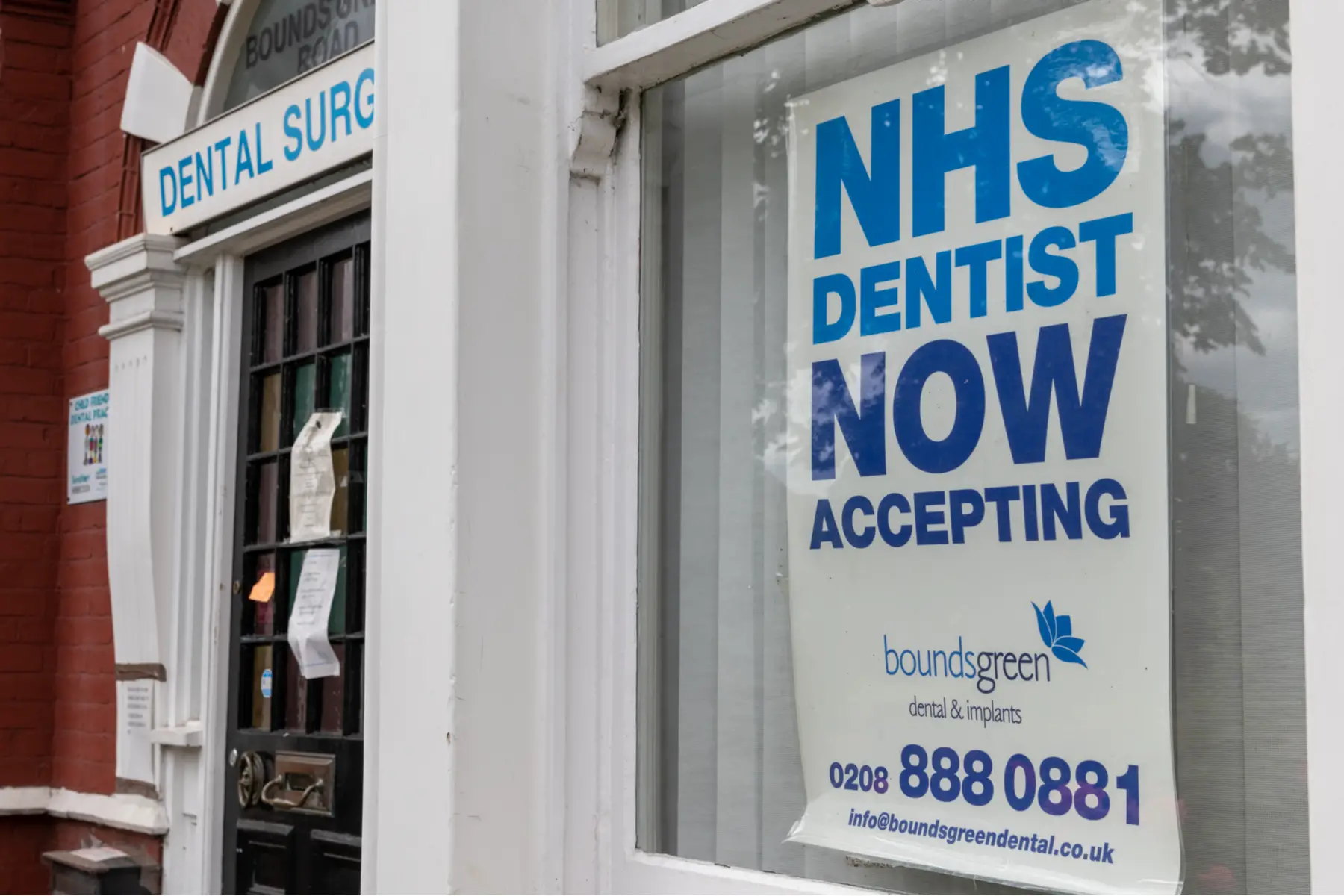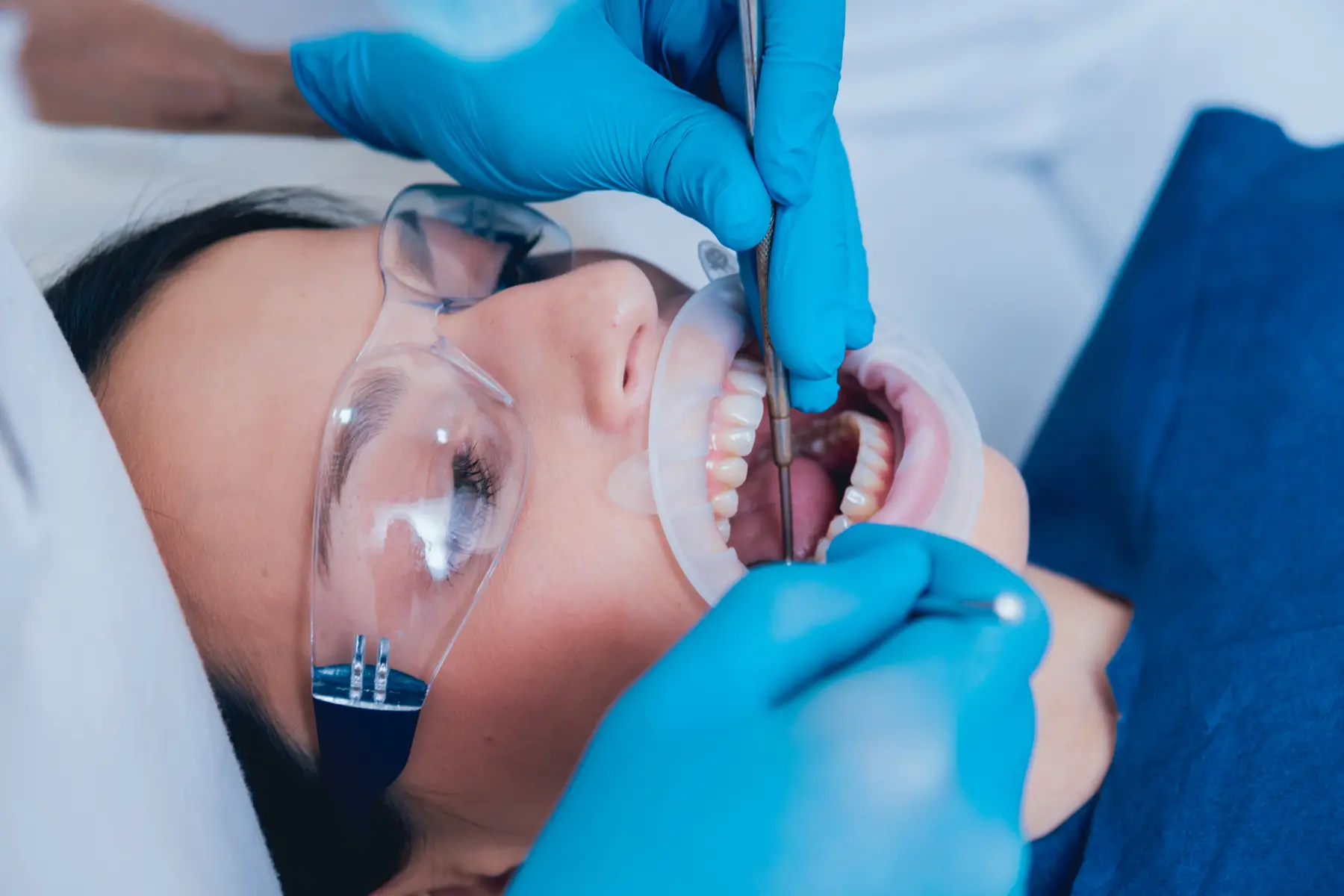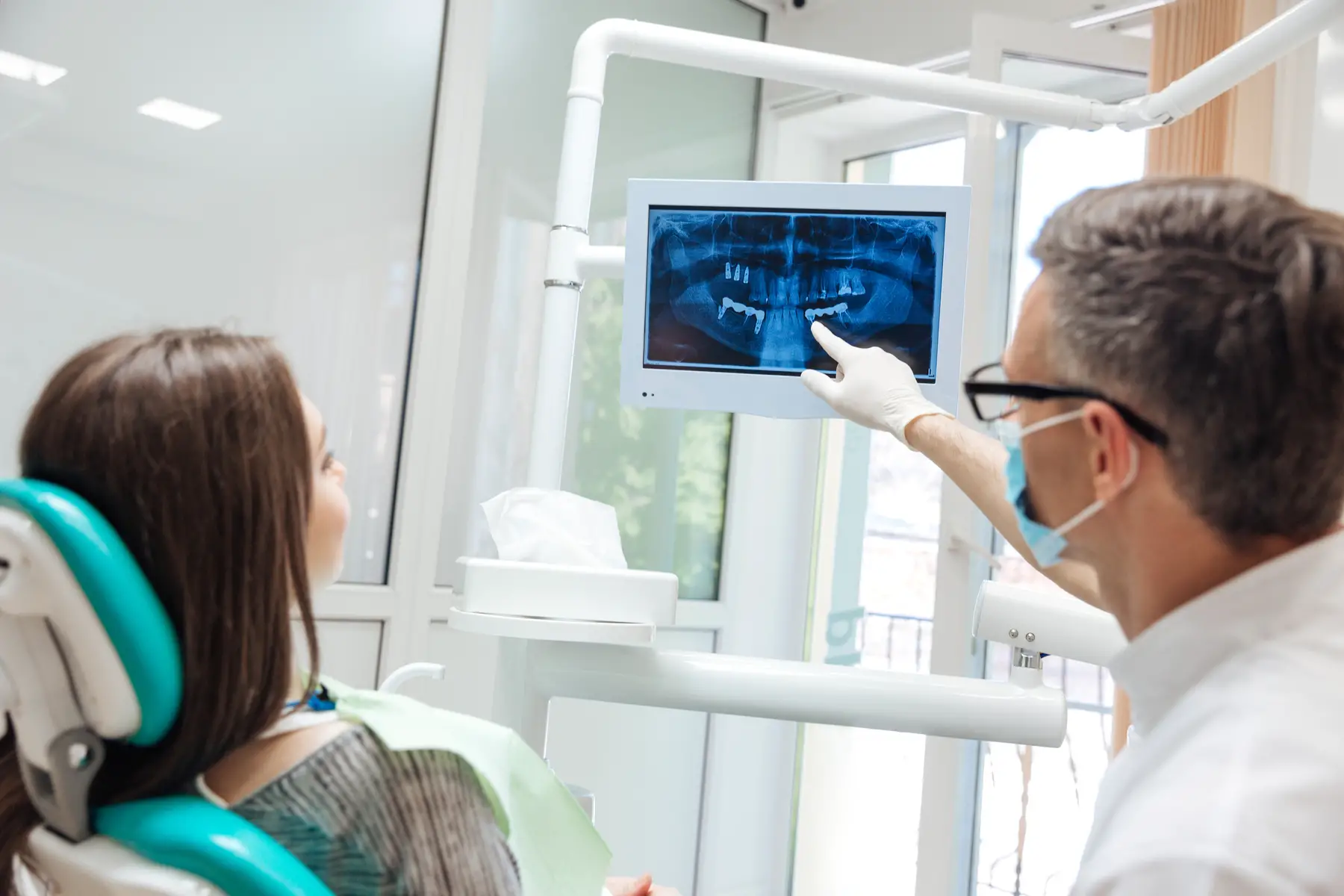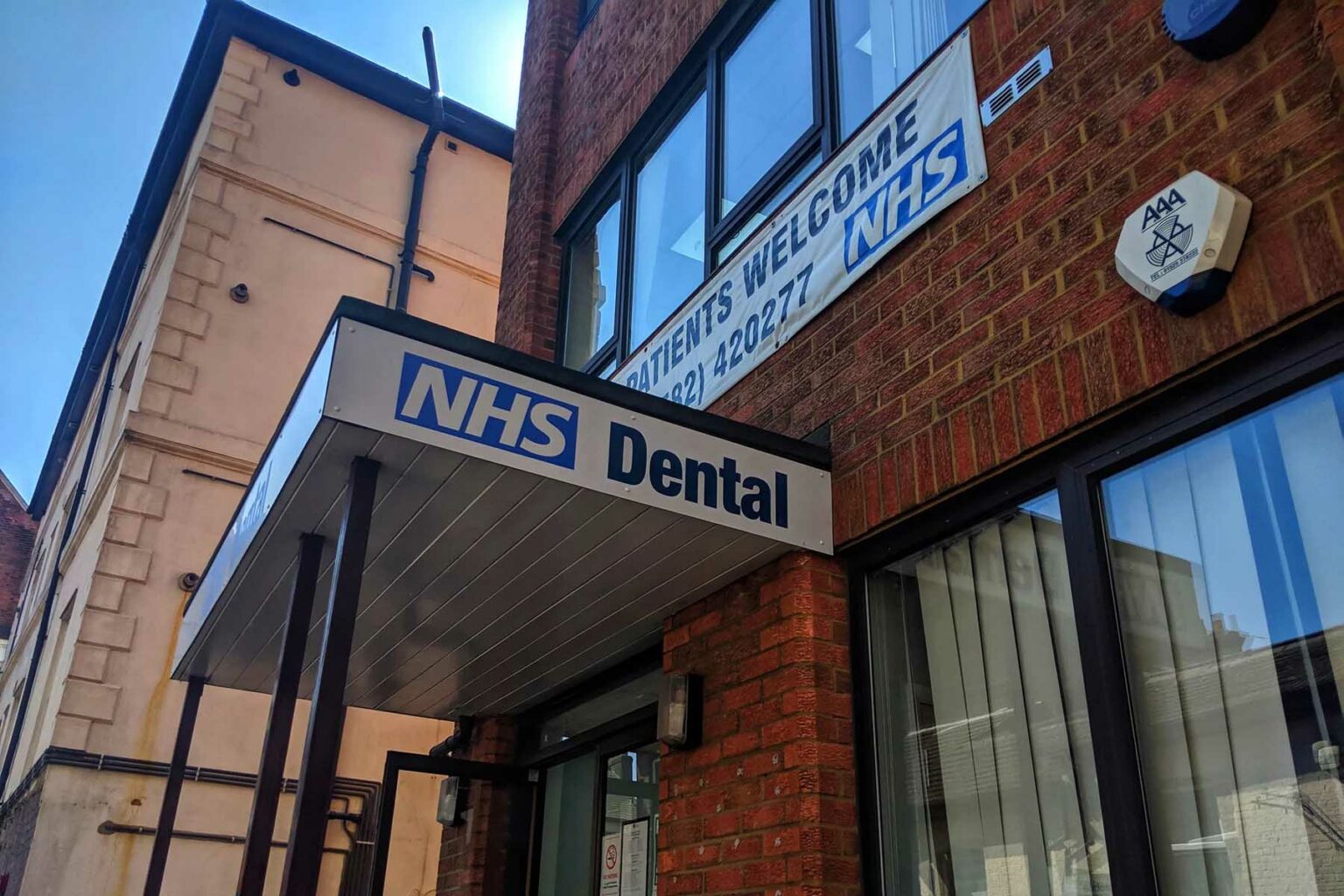Despite having an unfair reputation for poor oral health, British people report having relatively healthy teeth. Dental care is of a high standard, but dentistry provided by the National Health Service (NHS) faces several challenges. Although it’s affordable, it’s not always easy to access – many people living in the UK find themselves in ‘dental deserts,’ where it’s harder to find a practitioner.
Still, once you find a dentist, you’re likely to have a satisfactory experience in the treatment chair.
This comprehensive guide to dentists in the UK explains how to care for your ‘pearly whites.’ It includes information on the following:
Cigna Global
Enjoy peace of mind while living in the UK with Cigna Global’s long-term international health insurance plans (12+ months). Get tailored coverage, direct billing with many providers, complex case management, and global care on demand, with access to a network of 1.5+ million doctors, specialists, and therapists.
Dentistry in the UK health system
The majority of dentists in the UK provide a mix of NHS and private services. Public dentistry is available through the NHS, but it can be difficult to access. Therefore, it is often easier to get dental insurance and see a private dentist, which you can learn more about later in this guide.

In theory, everyone in the UK is eligible for dental care provided by the NHS. But despite this, attendance is fairly low. In fact, NHS Dental Statistics for England 2022–23 show that only 40% of the adult population in the UK visited a dentist in the 24 months leading up to 31 December 2023. Around 53% of the child population visited one in the preceding 12 months.
NHS dental care
Expats living permanently in the UK are able to access NHS dental care. However, you’ll need to decide whether to access NHS treatment or opt for private services. Although most dental practices offer both, many do not have vacancies for NHS patients. You can find your nearest practice and whether they have space on the NHS Find a dentist tool.
If you are unable to find a dentist that accepts new NHS patients, you can contact your local Healthwatch to get information about services in your area.
Who is eligible for free NHS dental care?
It is important to remember that NHS dental care is only cost-free for certain people. Most have to make a contribution to the cost of the treatment they receive. However, the costs are capped to make them affordable for those who require considerable and lengthy treatment.

NHS dental care is free for all those under 18, students under 19 if they are in full-time education, pregnant people and those who have had a baby in the last 12 months. Treatment is also free for those who claim certain benefits. However, you must show proof of benefits to the dental practice. You can check if you are eligible for free NHS dental care and whether you are exempt from NHS charges online.
What does NHS dental care cover?
NHS dental care includes the following check-ups and treatments:
- regular check-ups (usually twice a year)
- dentures
- root canal treatment
- crowns and bridges
- fillings
- preventive treatment (such as fluoride varnish, fissure sealants, and a scale and polish; if deemed clinically necessary)
- orthodontic (teeth straightening) treatment for children under 18
NHS dental care does not cover cosmetic treatment, such as teeth whitening, and you will have to pay for this privately. Dentists in the UK normally advise patients to attend a check-up every six months.
Costs of NHS dental care
If you normally pay for NHS dental treatment, the amount you spend will naturally depend on the treatment you need. Aside from emergency dental treatment, there are three NHS charge bands which are outlined below.
- Emergency dental treatment: £27.40 – This covers emergency care in a primary care NHS dental practice such as pain relief or a temporary filling
- NHS charge band 1: £27.40 – This covers an examination, diagnosis (including X-rays), advice on how to prevent future problems, a scale and polish if clinically needed, and preventative care such as the application of fluoride varnish or fissure sealant if appropriate
- Charge band 2: £75.30 – This covers everything listed above in Band 1, plus any further treatment such as fillings, root canal work, or removal of teeth but not more complex items covered by Band 3
- Band 3: £326.70 – This covers everything listed in Bands 1 and 2 above, plus crowns, dentures, bridges, and other laboratory work
Note: You will not be charged for individual items within an NHS course of treatment. Also, prices for NHS dental care vary significantly in Scotland, Wales, and Northern Ireland.
Private dental care in the UK
Around 20% of all dentists in the UK work exclusively in the private sector. There are, however, many dentists offering private treatment alongside public care.
Costs for private dental care
The cost of private dental treatment in the UK is unregulated and can vary widely from practice to practice. Therefore, the best advice is to shop around to find the best option for you. It may be worth taking out private dental insurance to cover the costs, especially if you expect to require regular treatment.
Dental insurance in the UK
If you prefer the convenience of having private dental treatment, then you might want to check out private medical insurance costs alongside the price of treatment advised by the dentist. Most practices will provide a price list for simple treatments and will quote for any work that is more complex.

One of the main advantages of having private dental care is that you can get an appointment more quickly, and routine private appointments are generally allocated more time than those on the NHS.
Moreover, appointments may be offered out of hours, including evenings and weekends. This means that you don’t have to take time off work and can be seen quickly. Fortunately, many insurance companies in the UK provide specialist cover for dental treatment. This may be your best option, depending on where you live and how long you can expect to wait to see an NHS dentist.
There are many insurers offering dental coverage in the UK. International providers are a great choice if you’re planning to travel a lot or would like a plan tailored to expats. These include:
There are also a number of ways to pay for private treatment including a capitation scheme. This allows you to make fixed monthly payments depending on your oral health and your expected level of treatment. Some UK employers also provide private health insurance to workers as part of their remuneration package; so this is worth asking about.
Finding a dentist in the UK
The easiest way to find a dentist in your area is to search via the NHS website. It allows you to search by postcode so you can find the closest practitioner.
However, if you decide to choose an NHS dentist, there are a few things to keep in mind. Firstly, you should never be asked to pay a deposit prior to your appointment. And secondly, there is no need to register. You can simply find a practice that is convenient for you and see if they have any appointments available.
If you are having any trouble finding a dentist that is accepting NHS patients, you can call 0300 311 2233; the NHS England’s Customer Contact Centre. You can also try your local Healthwatch, as they may be able to give you information about the dental services in your area.
Visiting a dentist in the UK
You don’t have to register with a dentist in the UK in the same way that you do with a GP in order to receive NHS treatment. Moreover, you shouldn’t be asked to have an examination or pay for any private work before being accepted by an NHS dentist.
That said, waiting times for NHS dentistry have unfortunately grown to become a major problem in recent years. As a result, many dentists are refusing to accept any more NHS patients. In fact, one dental practice reported a 10-year waiting list. As a result, some patients felt pressured into paying for private treatment in order to avoid unacceptable waits.

Once you have found a dentist that you like, they should be able to advise you about when they have an available appointment. If they can’t see you within a reasonable time, though, it might be best to shop around.
Having a check-up
When you see your dentist for a check-up, they will first carry out an examination or assessment. This is the first part of each course of NHS treatment and is included in the Band 1 (£27.40) charge. They will assess your mouth, teeth, and gums and advise you on how to look after them.
Patients can also expect to be asked about their medical history and any medicines they are taking. The dentist will also ask them about any problems they have had with their teeth, mouth, or gums. The dentist will explain the cost of all the recommended treatments and make future appointments for your next visit. At the end of the course of treatment, they will discuss when you should return for a routine check-up.

If your dentist recommends a Band 2 or Band 3 dental treatment, you’ll be given an NHS Personal Dental Treatment Plan (PDF) in advance. This outlines all the treatments you are having on the NHS and how much they will cost. If your dentist says that you need a particular type of treatment, you shouldn’t be asked to pay for it privately. If you have discussed alternative private options with the dentist, then these should be listed on your treatment plan.
Private treatment and costs
Separate details of any private treatment and associated costs should always be discussed with you first. This should be provided in writing before you commit to it. Upon agreement, the details will then be documented in your NHS Personal Dental Treatment Plan.
If this does not happen, you should inquire immediately with the surgery or make an official complaint. Similarly, any changes to treatment should be discussed with you and agreed upon first.
You can read more about what to expect when visiting an NHS dentist on the NHS website.
Children’s dental care in the UK
In the UK, dental care is free for children up to the age of 18, and for those in full-time education up to the age of 19. Children also do not need to register before visiting a dentist.

The NHS advises parents to take children to the dentist as soon as their first milk teeth appear and to arrange check-ups for them at regular intervals as advised by the dentist, or at least once a year.
Emergency dental care in the UK
If you require emergency dental care, you should contact NHS 111. However, do not contact a GP as they cannot assist you with dental matters. Alternatively, you can call any dentist close by and explain your situation. Thankfully, many make provisions to deal with urgent cases and should be able to suggest the best solution.
Most dentists have an answerphone message that explains what you need to do if you need out-of-hours assistance. If you have a trauma to your face, teeth, or mouth, you are bleeding a lot, or you are in severe pain and painkillers aren’t helping, then head to the accident and emergency department (A&E) at your nearest hospital.
For more information on emergency numbers, read our dedicated article.
Most urgent treatments only require one appointment, and you will only ever need to pay one Band 1 charge of £27.40 if you seek urgent care from an NHS dentist. If you require more than one session of urgent treatment, you should still only pay the Band 1 charge, so long as you see the same dentist. However, if the dentist recommends a separate course of non-urgent treatment, the relevant Band charges apply.
Of course, if you see a private dentist, the charge will depend on the treatment and whether they enforce a fee for emergency care. Private health insurance, or a specific dental insurance policy, should cover all – or a proportion of all – the costs incurred for private emergency treatment.
Useful resources
- NHS UK – provides information about NHS dental services, how to find an NHS dentist, and how much treatment costs
- Gov.UK – the Dental health: migrant health guide which provides advice and guidance on the health needs of migrant patients for healthcare practitioners
- NHS UK – information about what happens when you visit an NHS dentist
- NHS UK – provides a ‘Find a dentist’ search portal






